Download the PDF below.Language surrounds us in everyday life. The big and small day-to-day interactions with family members and caregivers can offer valuable and authentic opportunities for language development. Caregivers often ask how they can help support their child's language development at home.
Teachers of Multilingual Learners have unique roles, special jobs! They not the same as most of the other teachers in the building. Here are a few articles to help get the year started on the right foot.
4 Things You Can Take OFF of Your List Before School Starts 3 Common 1st Day of School Mistakes Things To Do with MLs During the 1st WEEK of School 5 Ways to Start Off Your Class Period with MLs The F-Word. Fidelity & Why it May Be a Fallacy for EL InstructionBuzzwords in education are like mosquitos. They are here for a while and during that time they become very annoying. Lately, many educators are hearing one certain F word frequently in regard to programs and curriculum.
FIDELITY What is advocacy? Am I doing it?
Many educators find themselves asking these questions. Advocacy sometimes sounds big and scary and many educators think they can’t do it. But actually, advocacy is incorporated in daily actions sometimes big and other times small. Multilingual learners (MLs) are amongst the fastest growing population in the United States. MLs come from diverse linguistic and cultural backgrounds. The assets they bring to classrooms are sometimes underrecognized leaving these students struggling linguistically and academically. Many teachers of MLs want to provide instruction that meets their needs but find themselves not knowing how to help and feeling overwhelmed.
This is where Universal Design for Learning (UDL) enters and has been known to support and benefit MLs. What is UDL? “There is something special about the languages we learn early in life”, research indicates.
Worldwide over 7,000 languages are spoken. While linguistic diversity is valued by many countries in the world, 40% of these languages are endangered. International Mother Language Day is celebrated on February 21st each year in an effort to shine a spotlight on the beauty and power of linguistic diversity and multilingualism. Last year this article was shared and greatly loved. This year, I'm adding to it to include one additional support.
Multilingual learners count on us to provide high-quality, comprehensible, and culturally responsive instruction in each lesson in every classroom. Here are 23 practical and efficient ways (in no particular order) we can support multilingual learners as they climb to become our future global leaders. *The terms multilingual, emergent bilingual, and English learner are used interchangeably in this article and also include the acronyms MLs, EBs, and ELs. An EL Teacher’s Perspective on Self (& Professional) ImprovementWhen we pour into ourselves, those around us benefit. This is why becoming the BEST version of yourself is an investment for not only YOU but all of those around you. Our students, families and colleagues deserve the best from us and so do we.
These ideas led me to think about how I will deliberately improve myself for the sake of the English learners, families, and colleagues I work with and here is my plan. I’m nudging you to think about your intentions also. What will you do in 2023? Here’s a look at the most popular places visitors stopped to read and interact on this website in 2022.
I have fond memories of cuddling up next to my tata (Serbian for daddy) before bedtime and listening anxiously as he told stories he remembered or even ones he made up. As an immigrant family from the former Yugoslavia, we brought little with us when we came to America. Books were heavy and did not make the journey. Storytelling, however, was a cherished time in our home. My favorite story was Hansel and Gretel.
**a version of this blog post was first published on BookBuzz. About this time of year dozens of articles come out about how to support English learners during the summer so their English language development doesn’t regress. Many with good intentions recommend families push English as a main or pervasive language. Historically, it was thought that students that were learning English needed to shed their heritage language to “make room” for English. Now we know that theory is not true and that a heritage language supports the development of additional languages. So what should we advise caregivers to do at home over the summer to keep their children learning and prepared for the next school year?
On May 11, I had the honor to sit in a virtual room with THE Regie Routman about teaching readers NOT teaching reading. Yes, we carefully thought that out because we both believe the center of instruction should be around children always. I'm delighted to share this conversation with you.
Teaching multilingual children is a gift. It’s truly a joy. In my own classroom, I learned so much from my students, especially those that spoke more than one language.
Over the years, one thing I learned from experience as well as through professional learning is that each student deserves to be seen and served individually. No one size fits all approach works. While differentiation may seem daunting, it’s actually not that scary. Dr. Stephen Fleenor describes differentiation as “not creating individualized lessons...it is creating environments in which students at all different levels, all different proficiencies...can each thrive and each grow one level up in that lesson”. Dr. Fleenor offers two wise suggestions for creating of environments that offer differentiation: This article was originally shared on the Seidlitz Blog on April 29, 2020.
Imagine you are a second grade student born in America, and you only speak English. You’ve attended English schools until now. But your father’s job has relocated your family to France, and now you are in a classroom filled with students and a teacher who only speak French (a language you have never spoken). The science teacher hands you a book and signals for you to read it. You open the book and find that it is filled with pictures…no words. First a group of horses. A mare feeding a foal. A colt running wild. Then a group of pigs, chickens, cows, etc. Instantly, you begin to think about the information you know about animals. What they are called, where they live, what they eat, etc. Though you aren’t able to communicate this information in French yet, you are able to follow along with the class and think in English using the schema and background knowledge you have about animals. Why Use Wordless Picture Books? If you are new to teaching English learners or new to your role as an EL/ESL/ELD/ELL teacher, these are articles you may find useful.
If you teach reading you have probably heard of the “Reading Wars”. And if you haven’t, then perhaps you don’t even need to read any further. For those that have, you might feel confused. I, for example, question why we have to “be at war” with colleagues or pick a side. I don’t want to be at war or pick a side. But the tension on Twitter and Facebook is real.
In essence the debate is about how best to teach reading to students. But many educators wonder if we can believe in both balanced literacy and the science of reading? The first thing we do with students can set the tone for our time together. Starting the period off on the right foot is critical to a successful lesson. Read on to discover five ways to start your class period in engaging and welcoming ways whether you are a general education teacher or an ESL teacher that pulls students out.
Are you hoping to get hired as an ESL teacher or specialist? Take a look at the questions compiled below from colleagues and experienced ESL teachers that have been in your shoes.
Hopefully, these will begin to give you ideas about how you might answer questions that the interview committee could ask you. 6 Things you can do now!First of all, WELCOME! We are glad to have you in our professional learning network. If you are reading this, I want to formally welcome you to a wonderful, passionate group of ESL educators and advocates who will support you along the way. In this article, you will find ideas for professional learning, resources to dig into, leaders in the field, and much more.
So you secured an ESL position. And you're wondering...how can I prepare for this job?
The 'summer slide' is a real thing. When summer hits, many students digress in learning. Sadly, English learners can become victim to the 'Summer Slide'. We can help our students and their families by giving them some information before summer starts!
What is the difference and Why should we care?Well, first and foremost, we should care if we want our students to speak like scholars. If we want our students to be marketable after they graduate. If we want them TO graduate! Then we should care! Sentence stems and frames are scaffolds as students learn language and content.
Sometimes educators use the terms sentence stems, sentence starters and sentence frames interchangeably. You may wonder...are they the same thing? The answer is no, they are are not the same. They have their own form and function. Often I'm inspired to write by something I've encountered either through reading a professional book, visiting a campus or classroom, or through conversation (in person or online). This post was inspired by recent conversation online. Let me set it up for you.
A teacher wanted advice regarding a student she has who is new to the United States. The student's primary language is Spanish and the teacher is having difficulty serving the student in a main stream English classroom while also serving the other English only students. The teacher mentioned that she had yet to have a conversation with the student. Many other teachers responded giving advice. Some said it's impossible to help this child. Others said that the student first must learn English before she can learn grade level content. Some said the other students in the class will suffer if the teacher employs techniques to support the one beginner. This post was completely deficit based and many of the comments to it really touched a nerve. "I see no benefit in having her..." So if you feel that you're in a similar situation or you know someone who is, here's some advice: How to handle resistance from teachersThis topic has been rolling around in my mind for quite some time. I hear about the problem from EL teachers around the nation. Not to mention that as an EL teacher myself, I encountered this struggle too many times.
I remember vividly having a meeting with a gen ed teacher. One of our students was struggling in her class. He hadn't been in the US very long, only a bit over a year. So I asked that we meet to discuss how I could help to plan with her and accommodate instruction. I was met with resistance from the moment I walked in the room. The teacher explained that she felt that this student (along with all the other ELs) should not have anything different than everyone in the class. She explained that she has heard him speak and that he is capable of doing the work. She went on to tell me that the grades were reflective of defiance and not ability. Ouch. I listened. Quietly. But it was difficult. And then when she finished, I carefully shared with her his language levels in each domain explaining the difference between social and academic language. We took a look at the types of accommodations that were appropriate for a learner at his language proficiency. In the end, it took a while for this teacher to come around. It took support, scaffolding, and leading the teacher to find the best way to make progress with the student. And to begin with, rebuilding their relationship came first. This student needed to know that the teacher genuinely cared about his education and growth. So what can you do if you are faced with a similar dilemma? Here are a few tips I've learned along the way: 1. Build a caring relationship with the teacher. The teacher will not trust you unless a solid foundation is there. Begin with casual conversations that have nothing to do with school. Get to know the teacher beyond work. Ask personal questions (but not too personal). Then start talking about content. Discuss the learning that's happening in the classroom. Finally talk about specific students, how they are doing, what they need to succeed, etc. This will not happen in one day, not in a week...it will take time. 2. Scaffold the teacher's learning. Model for the teacher (if you can) what you would like for him/her to do with students. If the teacher would benefit from understanding language development, scaffold that instruction for them. Introduce it in small chunks or provide visuals. 3. Model lessons. The best professional development is learning from other educators or our peers. Model lessons for the teacher that highlight accommodations. If you are a co-teacher, then this will work out great. If this is not possible, set up a time when the teacher can observe another educator to see a lesson. This is great because it not only helps your teacher who is struggling but also builds capacity for the other teacher. 4. Suggest professional learning opportunities. When the teacher is open to learning more, suggest professional development that will help to build on their practice. In-district PD, out of district PD, online learning, professional books, or twitter chats, are excellent. Each teacher will have their own learning style. Some like face to face while others prefer to read on their own or learn on line. The good news is that there are many options available these days. Being culturally aware and responsive to our students' needs is critical to their success. The more we support them during their learning, the better they will perform when it counts. I have found it helpful to share this cultural proficiency continuum (shared with me at a training) with educators and let them self-reflect. Let's back up a little and break it down. What is culture? Culture has many meanings and it depends on who you ask or which source you use. If you review most definitions, they all have somethings in common. Zion and Kozleski describe culture as the "shared beliefs, views, values, customs, behaviors and artifacts that the members of society use to interact with their world and with one another (as cited in Fenner & Snyder, 2017).
From this definition, I know we can gather that everyone has a culture. We all have beliefs and views. We all carry values and customs. We all have certain behaviors and artifacts related to our own society that we use to interact with the world and with others. This leads me to the conclusion that being culturally responsive is not only going to benefit my English Learners, it will benefit every child in my classroom. Create a Welcoming Environment
1. The BEST ESL teachers know how to make their students feel safe and valued. They are able to break down the walls of anxiety and fear so students feel ready and eager to learn. These teachers do this by using verbal and nonverbal cues. The way they speak with their students tells them that they are wanted, valued, and loved. These teachers make room for all students. |
Categories
All
|
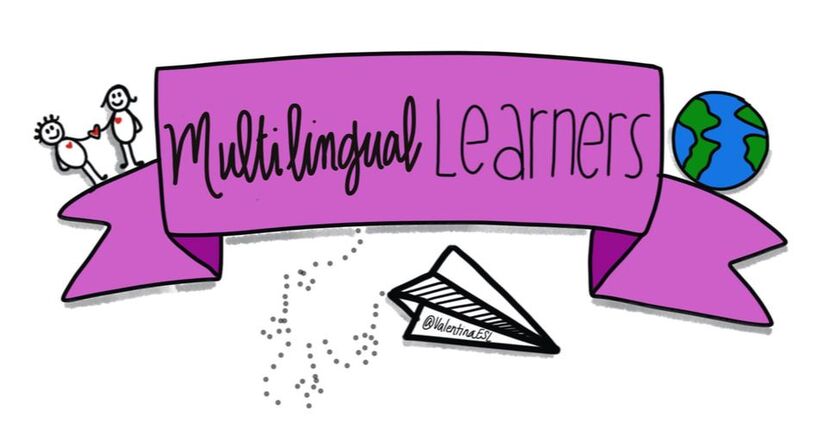
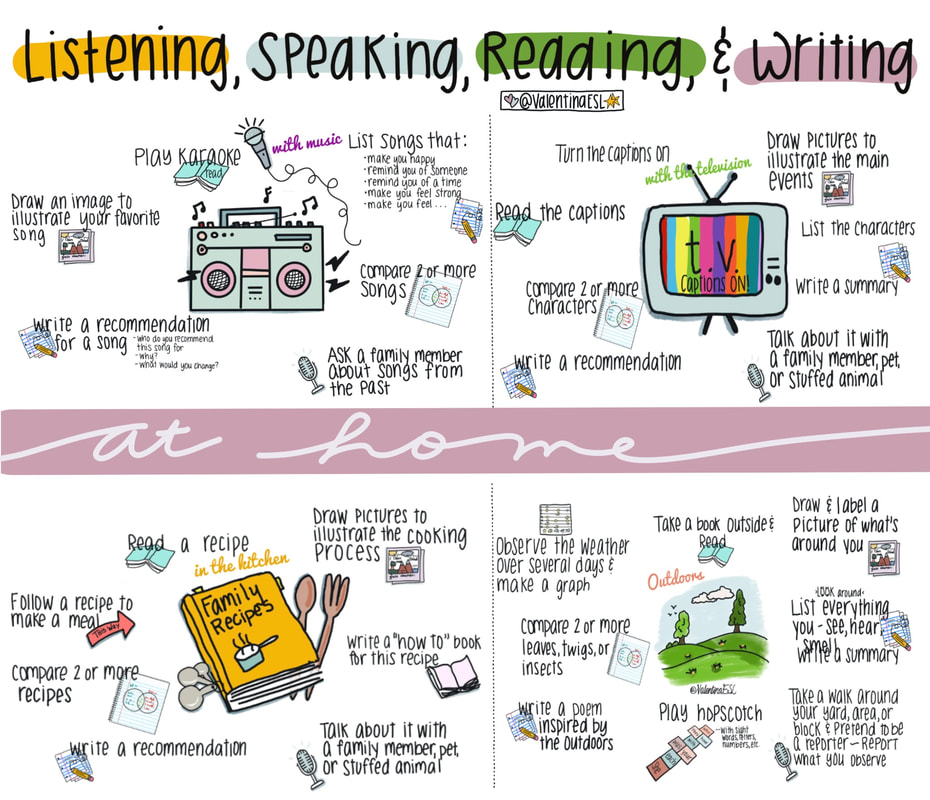
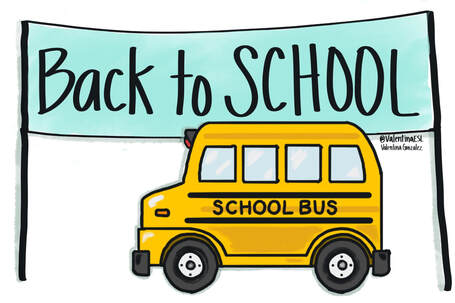
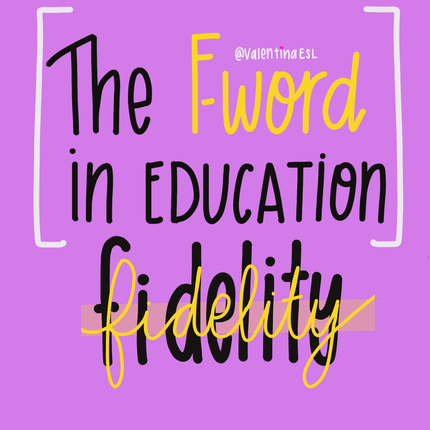
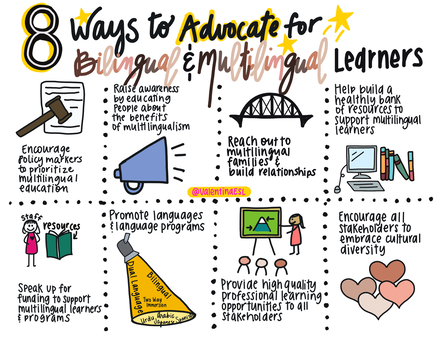
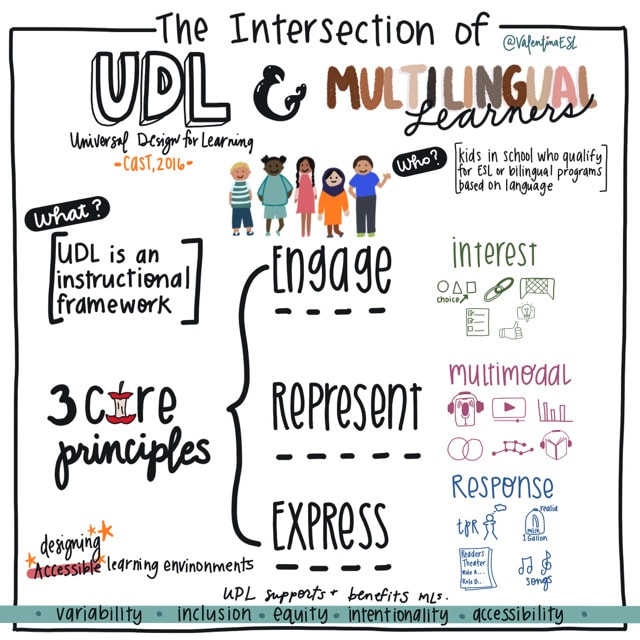
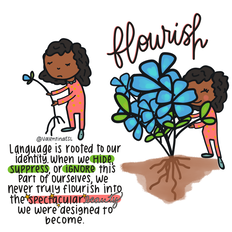
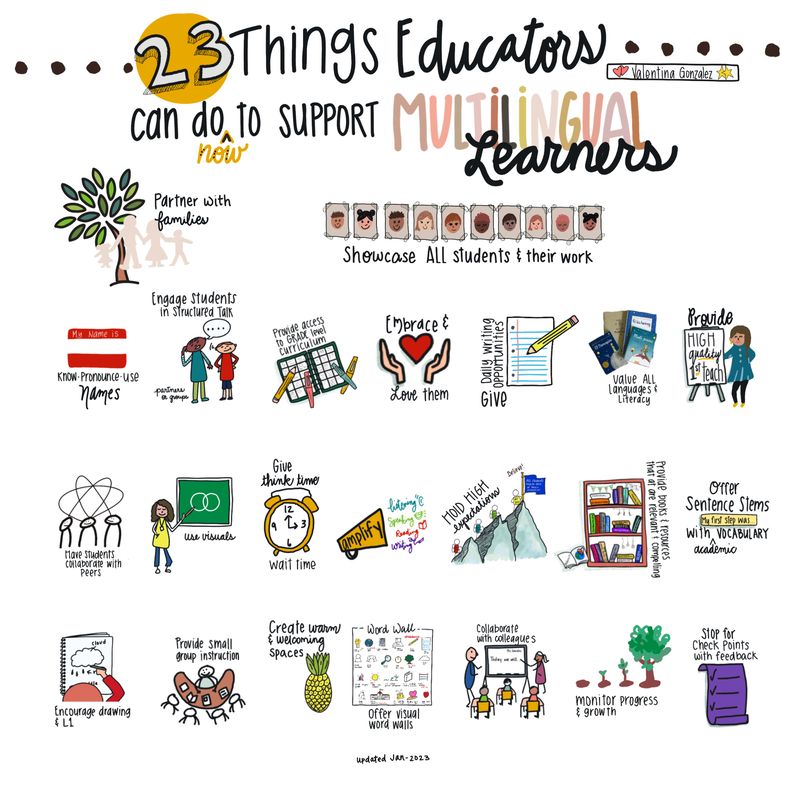
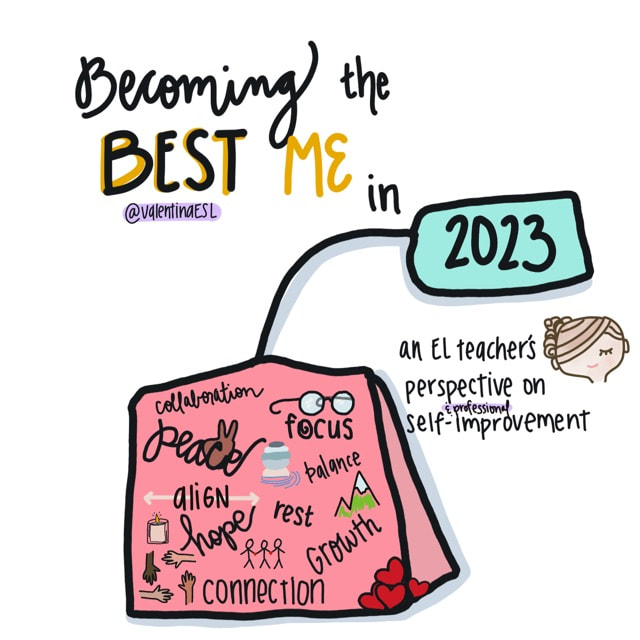
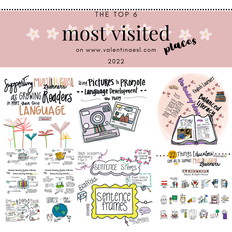
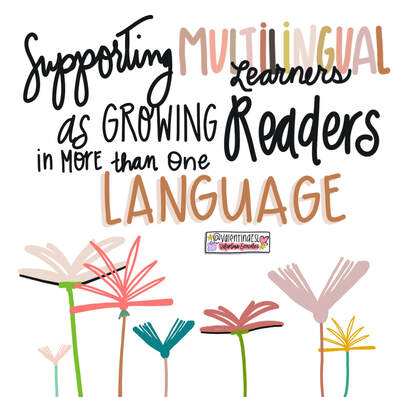
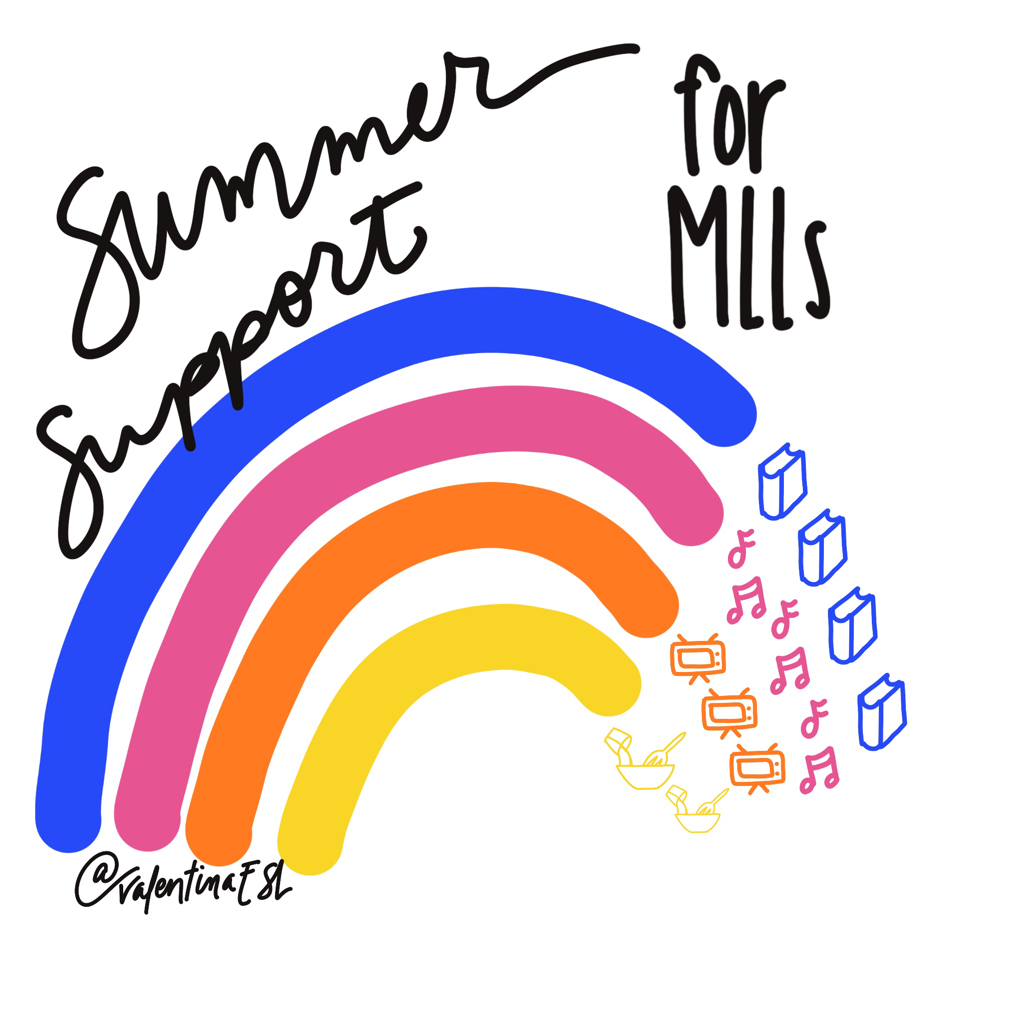
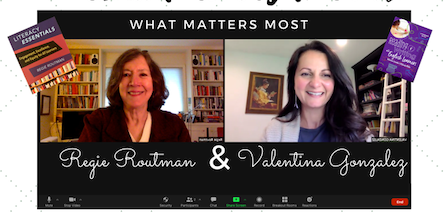
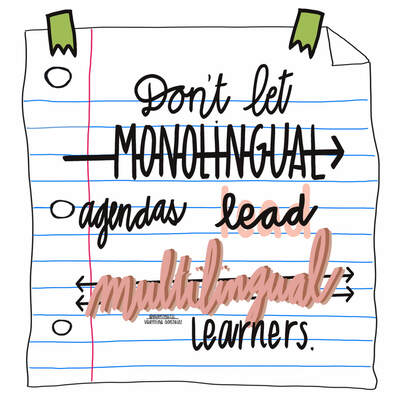
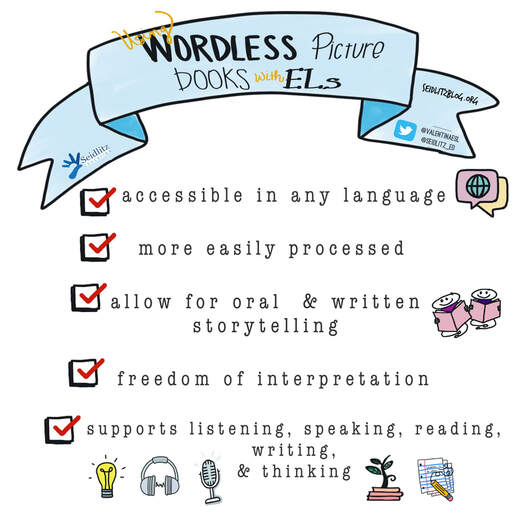
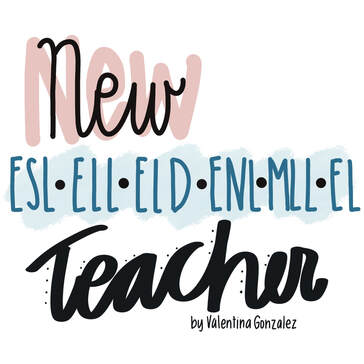
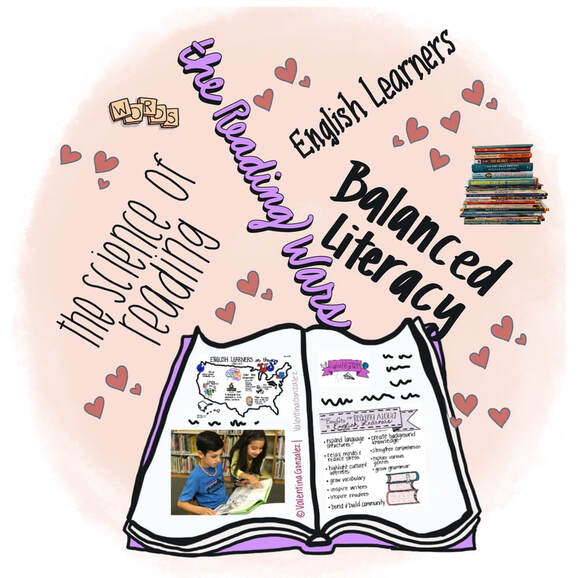
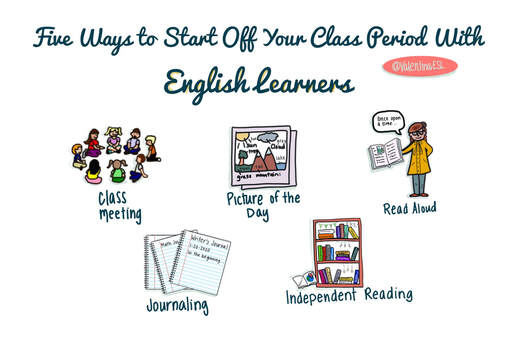
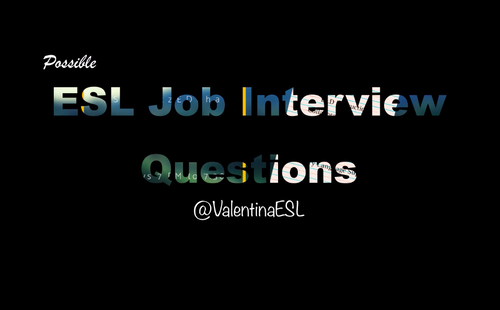
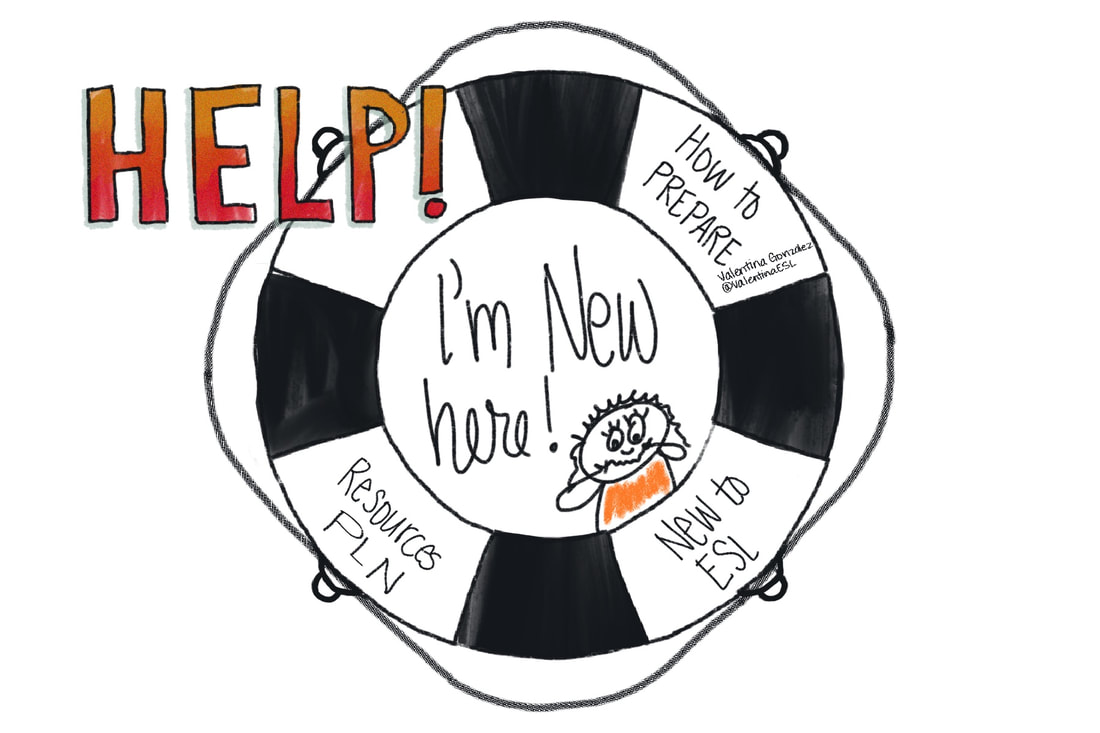
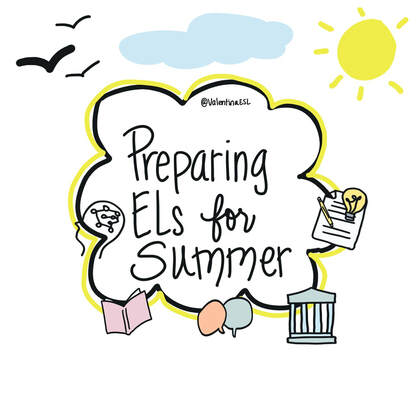
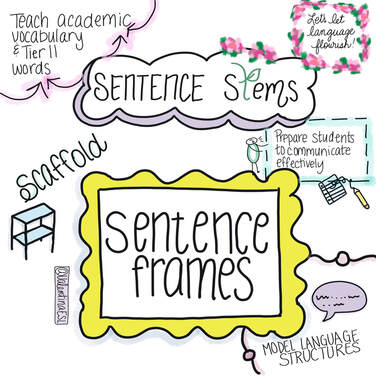
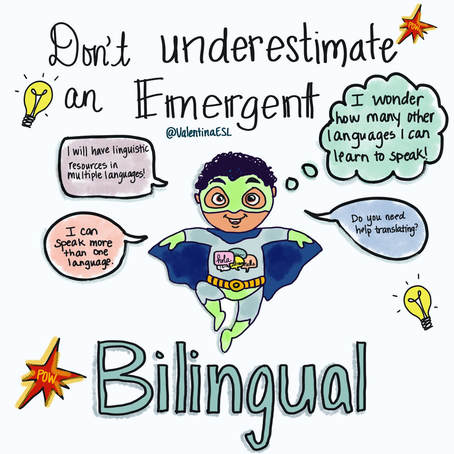
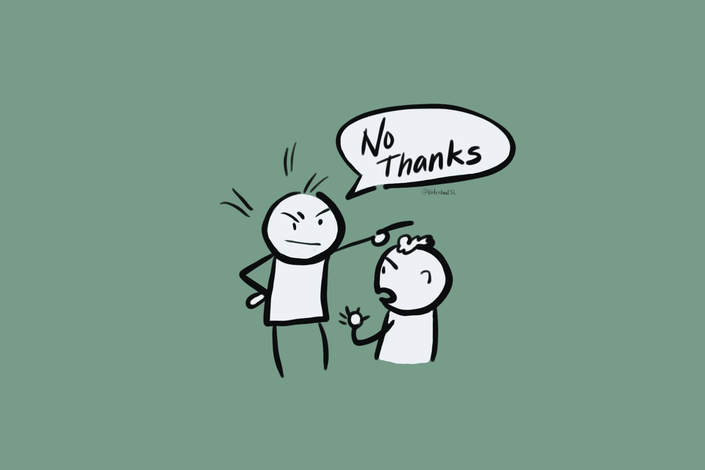
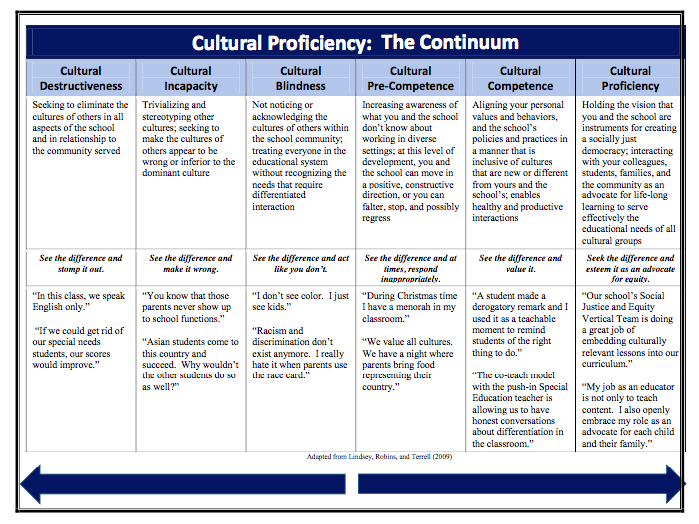
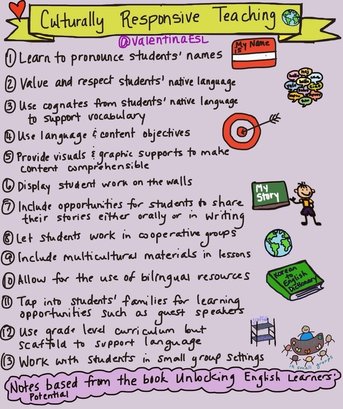
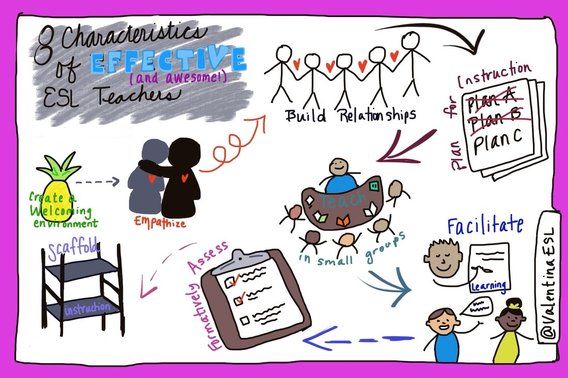
 RSS Feed
RSS Feed
